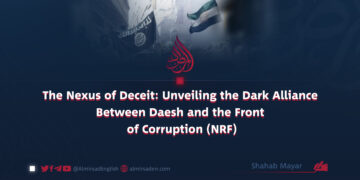Recently, the United Nations Analytical Support and Sanctions Monitoring Team submitted its 35th report to the Security Council. This report, published twice a year, assesses the status of ISIS, Al-Qaeda, and other groups. The current edition analyzes developments from mid-2024 to the end of December.
According to the report, Pakistan’s security agencies arrested three high-profile ISIS-K operatives last summer, effectively disrupting the group’s efforts to establish a stronghold in the country. The arrested individuals have been identified as Adil Panjsheri, Kaka Younis Uzbekistani, and Abu Munzir Tajikistani.
Pakistan’s security agencies typically do not conceal such achievements. However, the fact that this information was disclosed through the UN Sanctions Monitoring Team—rather than local media—suggests several possible reasons.
Following extensive operations by the Islamic Emirate’s security forces in Afghanistan, the leadership of ISIS-K fled to Pakistan, setting up bases in Balochistan and Khyber Pakhtunkhwa. This development has been corroborated by reports from the United Nations, global news agencies, and even Pakistani military-backed media outlets.
Pakistan’s security agencies, which now claim to have arrested Panjsheri, Younis, and Abu Munzir, are inadvertently validating reports from Al-Mirsaad and other sources that ISIS-K has shifted its operational base to Pakistan and is orchestrating attacks from there.
It is important to note that Adil Panjsheri and his associates have been identified as key planners and facilitators of the deadly attack in Kerman, Iran, on January 3, 2024, which resulted in nearly 400 casualties. Their arrest in Pakistan serves as further evidence that the Kerman attack was planned from Balochistan, and it appears that Pakistani intelligence arrested them merely to shield itself from scrutiny.
(Security sources also suggest that Adil Panjsheri was behind the attack on Kabul University on November 2, 2020, while Abu Munzir Tajikistani was involved in planning the Crocus City Hall attack in Moscow.)
It is highly likely that Pakistan arrested Adil Panjsheri with the intention of using him as a bargaining chip in negotiations with Iran, possibly in exchange for some wanted Baloch separatists. This move could be part of Pakistan’s broader strategy to advance its own objectives in the region.
The mastermind behind the Kerman attack was a Tajik national operating under the aliases Tariq and Abdullah, who is currently residing in Pakistan’s Balochistan province. However, the Pakistani regime has reportedly informed the UN Sanctions Monitoring Team that he is based in Afghanistan and operates from there.
In addition to the Kerman attack, Tariq was also responsible for planning the Kandahar attack in March last year. He had trained the attacker, Asadbek Madiyarov, in militant camps in Balochistan before dispatching him to Kandahar.
Pakistan is attempting to divert international attention away from the active ISIS hubs operating under its watch in Balochistan and Khyber Pakhtunkhwa. However, with each passing day, its involvement is becoming more exposed, and its claims are being increasingly challenged by emerging evidence.
If these ISIS strongholds in Balochistan and Khyber Pakhtunkhwa are not addressed, the region could soon witness more devastating attacks similar to those in Kerman, Kandahar, Kabul, and beyond.



















































